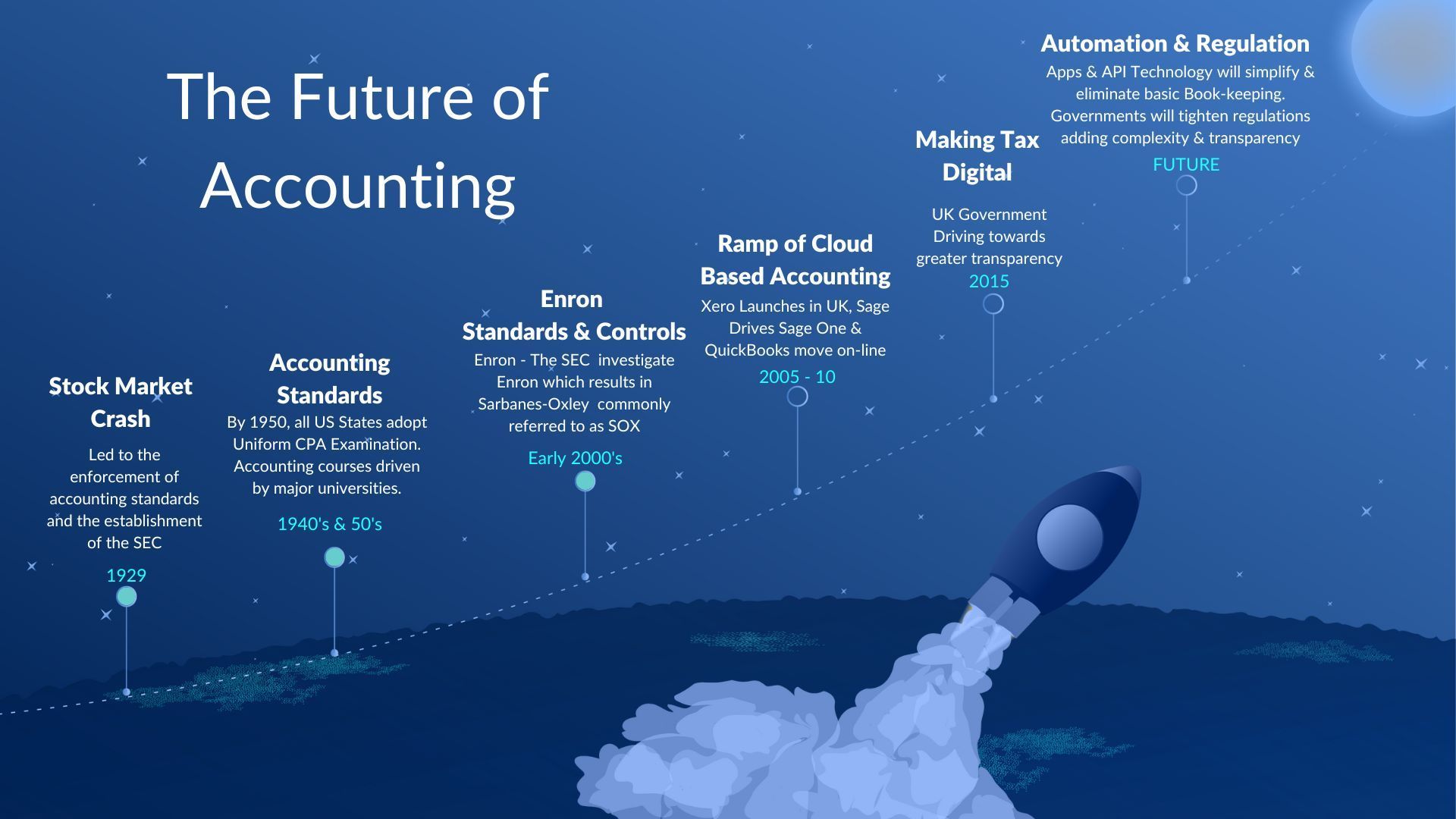The Future of Accounting: Embracing Innovation and Transformation

The accounting profession, traditionally seen as a conservative field, is on the cusp of a remarkable transformation. Driven by advancements in technology, changing regulatory landscapes, and evolving client expectations, the future of accounting promises to be dynamic and innovative. Let's explore some of the key trends and technologies that are shaping the future of accounting.
Automation and Artificial Intelligence (AI)
Automation and AI are revolutionising the accounting industry. Routine tasks such as data entry, reconciliation, and transaction processing can now be handled by AI-powered tools, allowing accountants to focus on more strategic and value-added activities. Machine learning algorithms can analyse large datasets to identify patterns, detect anomalies, and provide real-time insights, enhancing decision-making and efficiency.
Blockchain Technology
Blockchain technology is set to disrupt traditional accounting practices by providing a decentralised and immutable ledger for transactions. This technology ensures transparency, security, and traceability, reducing the risk of fraud and errors. Blockchain can streamline auditing processes by offering a clear and verifiable record of transactions, ultimately saving time and costs.
Cloud-Based Accounting
Cloud-based accounting software is transforming how businesses manage their finances. These platforms offer real-time access to financial data, seamless collaboration among team members, and integration with other business tools. Cloud accounting enables businesses to scale efficiently, reduce IT costs, and stay updated with the latest features and security enhancements.
Big Data and Analytics
The explosion of big data is empowering accountants to harness vast amounts of information for more accurate financial analysis and forecasting. Advanced analytics tools can process structured and unstructured data to provide deeper insights into business performance, customer behaviour, and market trends. Accountants can use these insights to drive strategic decision-making and enhance business outcomes.
The Role of Accountants as Advisors
As technology takes over routine tasks, the role of accountants is evolving from traditional number-crunchers to strategic advisors. Accountants are increasingly expected to provide insights and guidance on financial planning, risk management, and business growth. This shift requires accountants to develop strong analytical, communication, and problem-solving skills to deliver value beyond compliance.
Regulatory Changes and Compliance
The regulatory landscape is constantly evolving, with new standards and requirements emerging regularly. Accountants must stay informed about these changes to ensure compliance and mitigate risks for their clients. Technologies like AI and blockchain can assist in navigating complex regulations and automating compliance processes, reducing the burden on accounting professionals.
Sustainability and ESG Reporting
Environmental, Social, and Governance (ESG) factors are becoming increasingly important in the business world. Accountants are now tasked with measuring and reporting on sustainability metrics, such as carbon footprint, social impact, and governance practices. Integrating ESG reporting into financial statements helps businesses demonstrate their commitment to sustainability and attract socially conscious investors.
Continuous Learning and Adaptation
The rapid pace of technological advancements demands continuous learning and adaptation from accounting professionals. Embracing new tools, staying updated with industry trends, and acquiring new skills are essential for accountants to remain relevant and competitive in the future job market. Professional development and certifications will play a crucial role in equipping accountants with the knowledge and expertise needed to thrive.
Conclusion
The future of accounting is bright and full of opportunities for those willing to embrace change and innovation. By leveraging cutting-edge technologies, adapting to new regulatory environments, and enhancing their advisory roles, accountants can drive significant value for their clients and organisations. As we move forward, the accounting profession will continue to evolve, shaping the future of business and finance in exciting and transformative ways.
Share:







